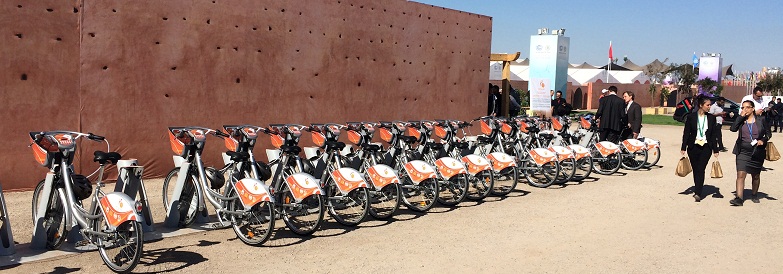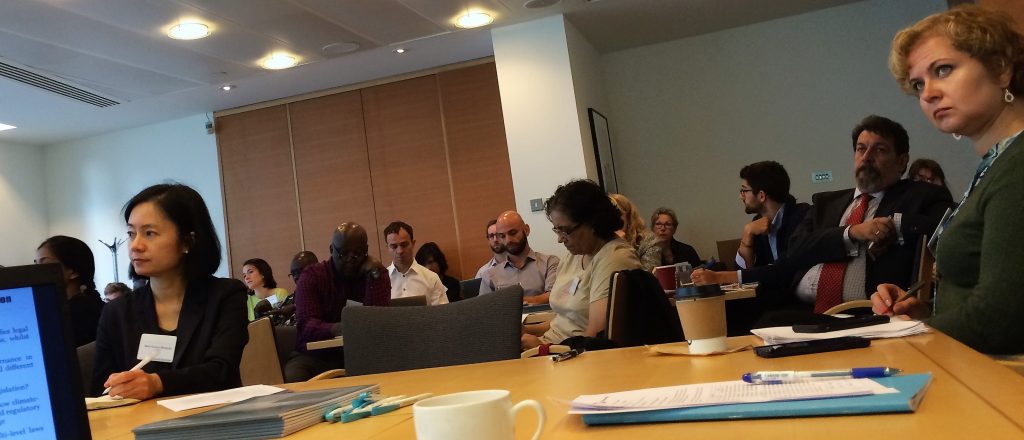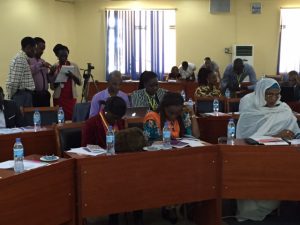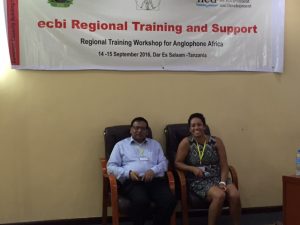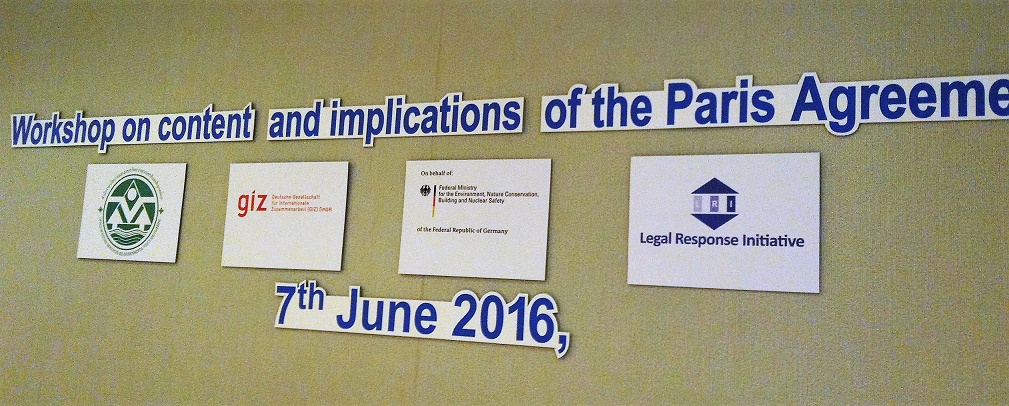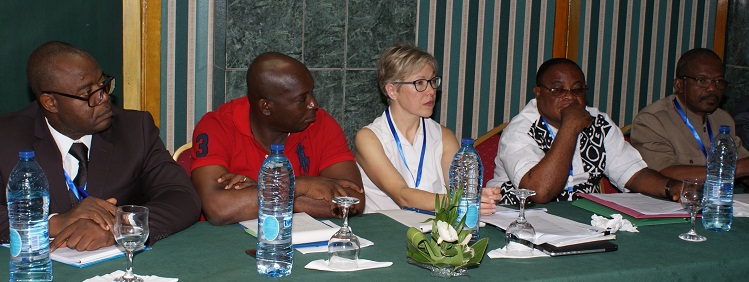14 November 2016
A team of LRI lawyers is attending the 22nd Conference of the Parties (COP22) to the UNFCCC in Marrakesh. To get in touch please email: liaisonofficers@legalresponse.org
In collaboration with UN Environment (UNEP), LRI also organised a round-table discussion on legal preparedness for the Paris Agreement as part of the Law and Governance Day. The event built on a climate legislation workshop previously held in London exploring the different approaches and ideas for supporting developing countries in their legislative efforts to respond to climate change and implement their commitments under the new Paris climate agreement (the report is available online).
The COP22 Law and Governance Day is aimed at sharing, strengthening, and generating new legal and institutional innovations in the law and policy reform elements of Nationally Determined Contributions (NDCs) and the Paris Agreement.
Alina Averchenkova of the Grantham Research Institute on Climate Change and the Environment (at LSE) presented some findings of a study on climate legislation worldwide. The research indicates that at present only four jurisdictions are fully prepared to implement the commitments contained in their nationally determined contributions (NDCs). A summary of the key trends is already available at: http://www.lse.ac.uk/GranthamInstitute/publication/2015-global-climate-legislation-study/ – the final report will be released on November 17.
Stephen Minas of the Dickson Poon School of Law at King’s College highlighted that legislation may not always be necessary but can send important signals to investors of climate solutions (that require legal certainty). Likewise, regulatory interventions need to consider domestic particularities and are also an opportunity for joint approaches in developing legislation and domestic capacity building.
Robert Ondhowe of the UNEP’s Law Division provided insights on how the Programme is supporting developing countries with respect to legal preparedness. During the following discussion participants brought up other areas of relevant research (e.g. on NDCs in the Maghreb region) and debated on how climate relevant laws may be defined and aligned with (future) requirements under the Paris Agreement.

